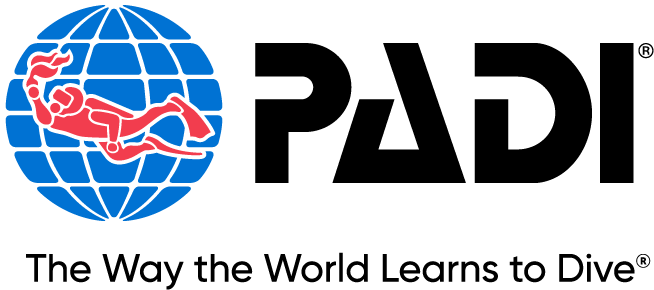Myth 1: Scuba Diving is Too Dangerous
One of the most persistent myths about scuba diving is that it’s an inherently dangerous activity. While there are risks involved in any adventure sport, when done responsibly and with proper training, scuba diving is very safe. In fact, the statistics show that scuba diving accidents are quite rare. According to the Divers Alert Network (DAN), the majority of diving-related accidents are preventable and occur due to improper training, lack of experience, or failure to follow safety guidelines.
The Truth: Scuba diving is safe when you’re properly trained, follow dive guidelines, and dive within your limits. Enroll in a reputable course like PADI or SSI, and you’ll be well-equipped to dive confidently.
Myth 2: You Need to Be an Olympic Swimmer to Dive
Another common misconception is that you need to be an expert swimmer to enjoy scuba diving. While it’s true that swimming skills are helpful, you don’t need to be an Olympic-level swimmer to dive. The primary skill required is comfort in the water. Scuba diving courses don’t require extensive swimming abilities—basic swimming skills and being comfortable in the water are more than enough.
The Truth: You don’t need to be an advanced swimmer to dive. As long as you can float, tread water, and swim short distances, you’re good to go. Scuba instructors will ensure you feel comfortable and confident before diving.
Myth 3: Scuba Diving Can Cause Claustrophobia
Many people are hesitant to try scuba diving because they fear feeling trapped or claustrophobic underwater. While it’s true that diving involves being submerged, the idea that you’ll feel trapped is a myth. Most divers report feeling a sense of freedom and weightlessness when underwater. Additionally, you’re always in control of your dive. If you ever feel uncomfortable or need to surface, you can do so at any time.
The Truth: Scuba diving offers a liberating sense of freedom. You won’t feel trapped, and you can always control your dive. If you’re prone to claustrophobia, it’s best to do a try dive in a controlled setting to help ease any concerns.
Myth 4: You Can’t Dive After Eating
Some people believe that you should wait hours after eating before going scuba diving to avoid stomach discomfort or other issues. While it’s generally a good idea to avoid overeating right before a dive, you don’t need to starve yourself or avoid diving after meals altogether. The key is to eat a light meal a few hours before your dive to ensure you’re not too full or too hungry.
The Truth: It’s perfectly fine to eat before diving, but stick to a light meal that won’t leave you feeling sluggish. Avoid heavy meals that could cause discomfort, and make sure to hydrate well before you dive.
Myth 5: Scuba Diving is Only for Young People
You might think that diving is a young person’s sport, but this is far from the truth. Scuba diving is a sport for all ages. People from all walks of life, including those in their 50s, 60s, and beyond, enjoy scuba diving. The key to diving at any age is maintaining good health and fitness, but there’s no age limit for enjoying the beauty of the underwater world.
The Truth: Scuba diving is for everyone, no matter your age. As long as you’re in good health and have no contraindications to diving, you can enjoy the sport at any age. Many dive operators cater to divers of all experience levels and ages.
Myth 6: You Can’t Dive If You Wear Glasses
Another common misconception is that people who wear glasses or contact lenses can’t go scuba diving. This myth likely stems from the idea that scuba diving masks won’t fit properly over glasses. However, this is not the case. There are several solutions for divers who need vision correction, including prescription dive masks or wearing contact lenses during dives.
The Truth: You can dive with glasses or contact lenses. Prescription masks are a great option, or you can wear contact lenses if they’re comfortable for you. It’s important to ensure that your vision is clear while diving for safety and enjoyment.
Myth 7: Scuba Diving Ruins Your Ears
Some people believe that scuba diving causes permanent ear damage or can harm your hearing. While it’s true that ear equalization is an important part of scuba diving, when done correctly, it’s a safe practice. Equalizing your ears regularly during a dive helps to prevent discomfort or damage. Divers are trained to equalize early and often to keep their ears healthy.
The Truth: If you equalize your ears properly, there’s no reason why scuba diving should affect your hearing. Learning and practicing proper ear equalization techniques during your course will keep you comfortable and safe.
Myth 8: All Sharks Are Dangerous
Sharks have a reputation for being dangerous, but the reality is that most sharks are not a threat to humans. Out of the 500+ species of sharks, only a handful are known to be potentially dangerous to humans. Many species of sharks, such as the whale shark, are gentle giants that feed on plankton and small fish, and they are harmless to divers.
The Truth: Most sharks are not dangerous. In fact, they’re a vital part of marine ecosystems and often a highlight for divers. With proper respect and understanding, diving with sharks is a safe and awe-inspiring experience.
Myth 9: Scuba Diving Is Expensive and Out of Reach
While scuba diving may seem like an expensive hobby, there are affordable options for those who want to get started. You can often find deals on dive certifications, rental gear, and dive trips. Moreover, once you have your certification, the cost of diving is relatively low compared to other adventure sports. Many dive schools offer packages for multiple dives, making it more cost-effective.
The Truth: Scuba diving is an accessible activity, and there are budget-friendly options available. Start by finding local dive schools that offer certifications and dive packages that fit your budget.
Conclusion
Scuba diving is an exciting, safe, and rewarding adventure that is full of myths and misconceptions. From fears about danger to myths about physical requirements, the truth is that scuba diving is an inclusive sport that anyone can enjoy with the right training and preparation. So, if you’ve been hesitant to dive into the world of scuba because of these misconceptions, it’s time to dive in and explore the beauty of the underwater world for yourself!
Happy diving!



